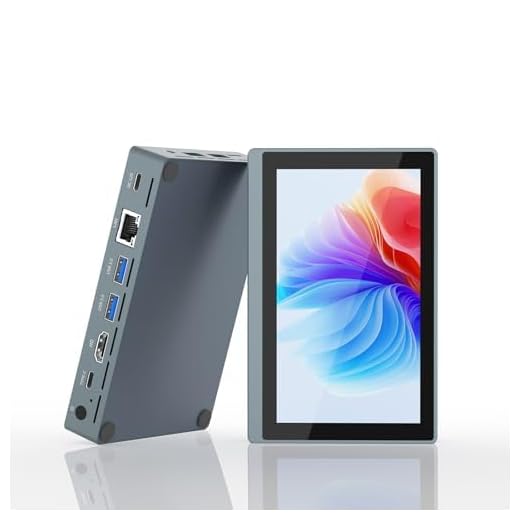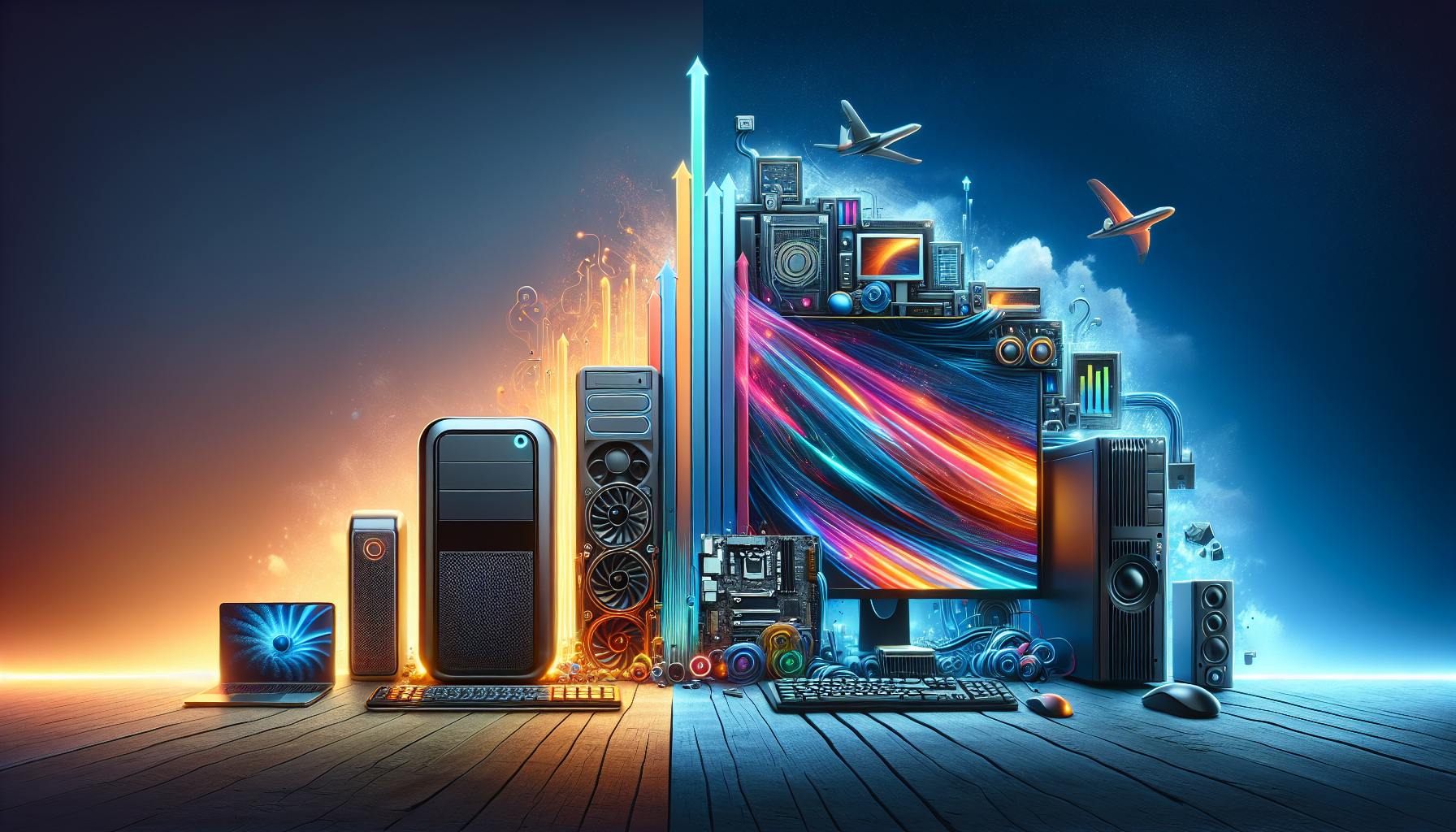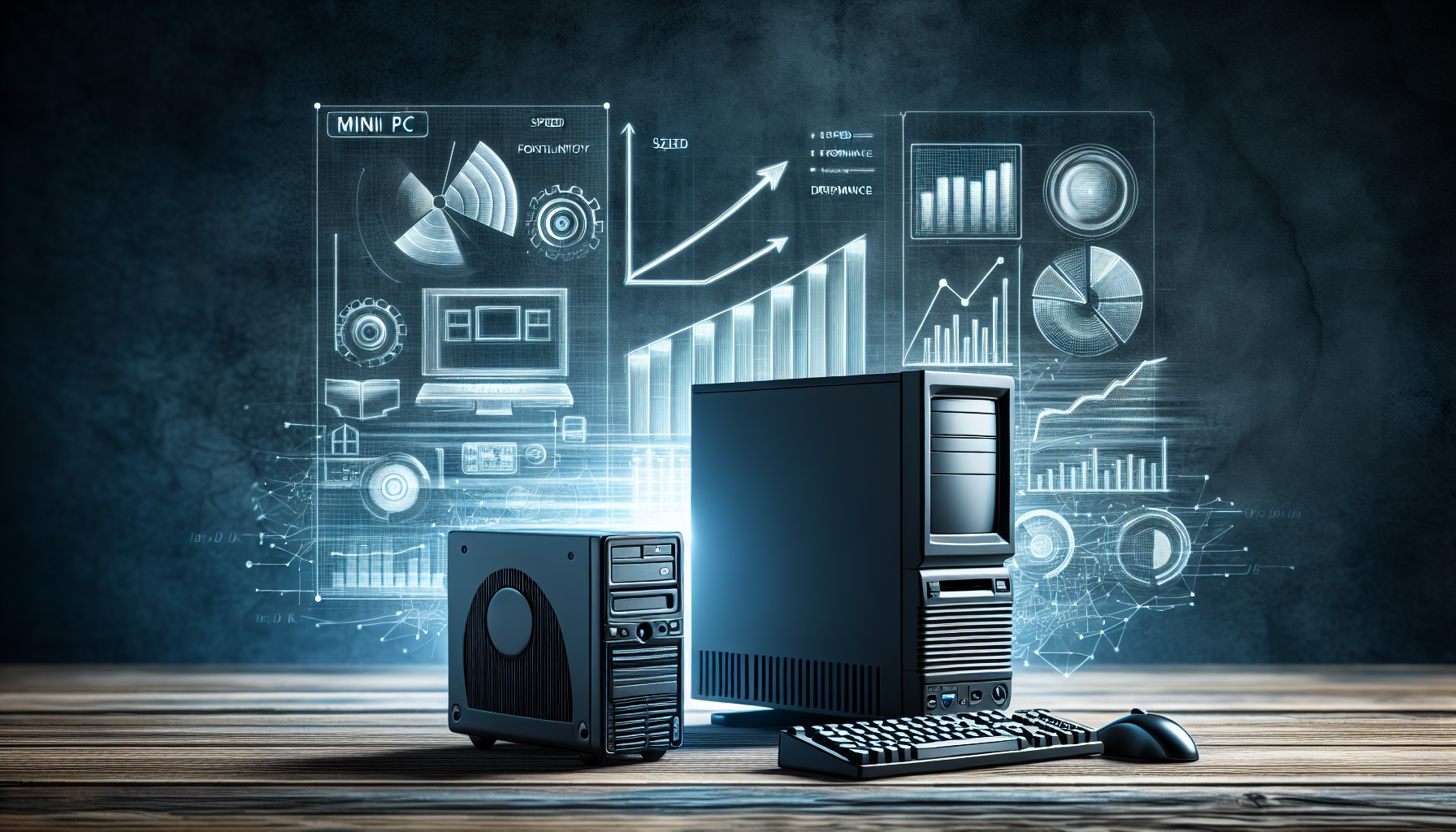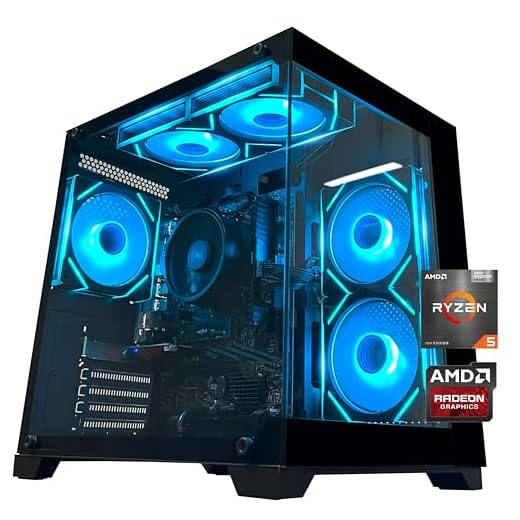



Have you ever wondered if a mini PC is the same as a desktop? While these two terms are often used interchangeably, it’s important to understand the key differences between them. In this article, we’ll explore the distinctions between mini PCs and desktops, helping you determine which option best suits your needs. So, whether you’re a tech enthusiast, a casual user, or someone just looking for an upgrade, read on to uncover the similarities and differences between these popular computing devices.

Size and Form Factor
Mini PC
Mini PCs are compact and portable devices that are designed to be smaller than traditional desktop computers. They typically have a small form factor, allowing them to fit in tight spaces and be easily transported. Mini PCs are often as small as a set-top box or even smaller, making them ideal for small apartments, dorm rooms, or on-the-go professionals who frequently travel.
Desktop
On the other hand, desktop computers are larger in size and have a bulkier form factor compared to mini PCs. They are designed to be stationary and typically require a designated space on a desk or table. Desktop computers come in various sizes, ranging from mid-tower to full tower, depending on the amount of internal components they can accommodate.
When it comes to size and form factor, mini PCs offer a clear advantage in terms of space-saving and portability. However, desktop computers provide a larger internal capacity for more powerful components.
Components
Mini PC
Mini PCs are built with a focus on compactness, so their internal components are specifically designed to fit within the limited space. Despite their small size, mini PCs can still pack a punch when it comes to processing power. They are typically equipped with lower-power processors such as Intel Core i3 or i5, integrated graphics, and limited storage options such as solid-state drives (SSDs) or smaller hard disk drives (HDDs).
Desktop
Desktop computers, due to their larger form factor, can house a wide range of powerful components. They can accommodate high-performance processors like Intel Core i7 or AMD Ryzen, dedicated graphics cards for gaming or professional tasks, and multiple storage options such as larger HDDs or high-speed SSDs. Desktops also offer more flexibility in terms of component customization, allowing users to easily upgrade or replace individual parts according to their needs and preferences.
In terms of components, desktop computers have a clear advantage over mini PCs, thanks to their larger size and ability to support high-performance hardware.
Performance
Mini PC
While mini PCs may not match the raw processing power of desktop computers, they still offer impressive performance for everyday tasks. Mini PCs are more than capable of handling basic web browsing, video streaming, office productivity software, and even some light gaming. They are suitable for individuals who primarily require a compact and efficient computer for everyday use.
Desktop
Desktop computers, given their larger size and ability to support powerful components, excel in terms of performance. They are capable of handling resource-intensive tasks such as video editing, 3D rendering, gaming, and running demanding software without breaking a sweat. Desktops are the go-to choice for professionals and gamers who require high-performance computing capabilities.
When it comes to performance, desktop computers are the clear winners. However, mini PCs still offer sufficient power for everyday tasks and casual use.
Power Consumption
Mini PC
One of the key advantages of mini PCs is their low power consumption. The compact design of mini PCs allows for efficient power usage and reduced energy consumption. They are designed to consume less electricity compared to desktop computers, making them more eco-friendly and economical in the long run. This lower power consumption also translates to less heat being generated, resulting in quieter operation and enhanced overall reliability.
Desktop
Desktop computers generally consume more power due to their larger size and higher-performance components. The powerful processors, dedicated graphics cards, and additional peripherals can significantly contribute to increased power consumption. While desktops provide superior performance, users should consider the higher electricity bills and environmental impact associated with their increased power demand.
If power efficiency is a priority, mini PCs are the clear choice as they offer lower power consumption and reduced environmental impact.

Portability
Mini PC
When it comes to portability, mini PCs are unbeatable. Their compact size and lightweight design make them incredibly portable. Mini PCs can easily fit into a backpack, briefcase, or even a small carry-on bag, allowing users to take their computing power with them wherever they go. This portability makes mini PCs ideal for travelers, students, and professionals who need a portable workstation.
Desktop
Unlike mini PCs, desktop computers are not designed with portability in mind. Their larger size and weight make them cumbersome to transport from one location to another. Desktops are typically meant to be stationary devices that stay connected to monitors, keyboards, and other peripherals on a desk. While it is possible to disassemble and move a desktop computer, it is not as convenient or practical as with a mini PC.
When it comes to portability, mini PCs clearly offer the advantage of being compact and easy to transport.
Upgradeability
Mini PC
One of the limitations of mini PCs is their limited upgradeability. Due to their small form factor, mini PCs have limited space for additional components or upgrades. While some mini PCs may allow for RAM or storage upgrades, the options are often limited and may require expert knowledge or technical skills. Upgradeability in mini PCs may be restricted to external devices such as external drives or peripherals.
Desktop
Desktop computers excel in terms of upgradeability. Their larger size and spacious internal layout allow for easy access and customization of components. Users can upgrade or replace parts like processors, RAM modules, graphics cards, and storage drives without much hassle. Desktops offer a high degree of flexibility, allowing users to adapt their computers to changing needs or emerging technologies.
When it comes to upgradeability, desktop computers are the clear winners, providing users with the ability to easily modify and expand their systems to suit their evolving requirements.
Connectivity
Mini PC
Mini PCs typically offer a range of connectivity options, despite their compact size. They often come equipped with USB ports, HDMI or DisplayPort for video output, audio jacks, and sometimes even Thunderbolt ports for high-speed data transfer. The number of available ports may vary depending on the specific model. Mini PCs are designed to provide enough connectivity options to accommodate essential peripherals and accessories.
Desktop
Desktop computers generally offer more extensive connectivity options compared to mini PCs. Being larger in size, desktops can accommodate a broader range of ports, including multiple USB ports, audio jacks, Ethernet ports for wired network connections, and various video output options such as HDMI, DisplayPort, or DVI. Additionally, desktops may have expansion slots to add additional connectivity options or upgrade components like network cards or sound cards.
In terms of connectivity, desktop computers provide a wider range of options, making them more suitable for users who require extensive connectivity requirements.
Operating Systems
Mini PC
Mini PCs are compatible with a wide range of operating systems, including Windows, macOS, and Linux distributions. Users can choose the operating system that best suits their needs and preferences. It is important to check the specific hardware compatibility with the desired operating system before purchasing a mini PC, as some hardware components may require specific drivers or software.
Desktop
Desktop computers also support a variety of operating systems, including Windows, macOS, and Linux distributions. The choice of operating system depends on user preference and software compatibility requirements. Desktops generally have broader hardware compatibility compared to mini PCs, allowing for a wider range of operating systems to be installed.
Both mini PCs and desktop computers offer flexibility in terms of operating system choices, ensuring compatibility with various software and applications.
Intended Use
Mini PC
Mini PCs are designed to cater to specific use cases where portability and space-saving are essential. They are ideal for individuals who require a compact and portable computing device for tasks such as web browsing, email, document editing, media streaming, and light gaming. Mini PCs are also often used as media centers, home theater PCs, or for digital signage purposes in commercial settings.
Desktop
Desktop computers are more versatile and suitable for a wide range of use cases. They are the go-to choice for professionals and gamers who require high-performance computing capabilities for tasks like video editing, graphic design, software development, or gaming. Desktops are also well-suited for multitasking and running resource-intensive applications simultaneously.
While mini PCs excel in portable and space-saving scenarios, desktop computers offer more power and versatility for demanding tasks.
Price
Mini PC
Mini PCs are generally more affordable compared to desktop computers. Due to their smaller size and lower-power components, mini PCs usually fall into a lower price range. This makes them an attractive option for budget-conscious individuals who still require a functional computing device.
Desktop
Desktop computers, with their larger size and ability to support more powerful components, often come with a higher price tag. High-performance processors, dedicated graphics cards, and larger storage options contribute to the overall cost of a desktop computer. This makes desktops a better choice for users who require top-notch performance but are willing to invest more in their computing setup.
In terms of price, mini PCs offer a more budget-friendly option, while desktop computers offer superior performance at a higher cost.
In conclusion, while mini PCs and desktop computers share some similarities, they are distinct in terms of size, form factor, components, performance, power consumption, portability, upgradeability, connectivity, operating systems, intended use, and price. Mini PCs are compact, portable, and more affordable options ideal for light everyday use and on-the-go professionals, while desktop computers offer superior performance, extensive customization options, and are better suited for high-performance tasks and gaming. Ultimately, the choice between a mini PC and a desktop computer depends on individual needs, budget, and intended use.
Disclosure: As an Amazon Associate, I earn from qualifying purchases.






